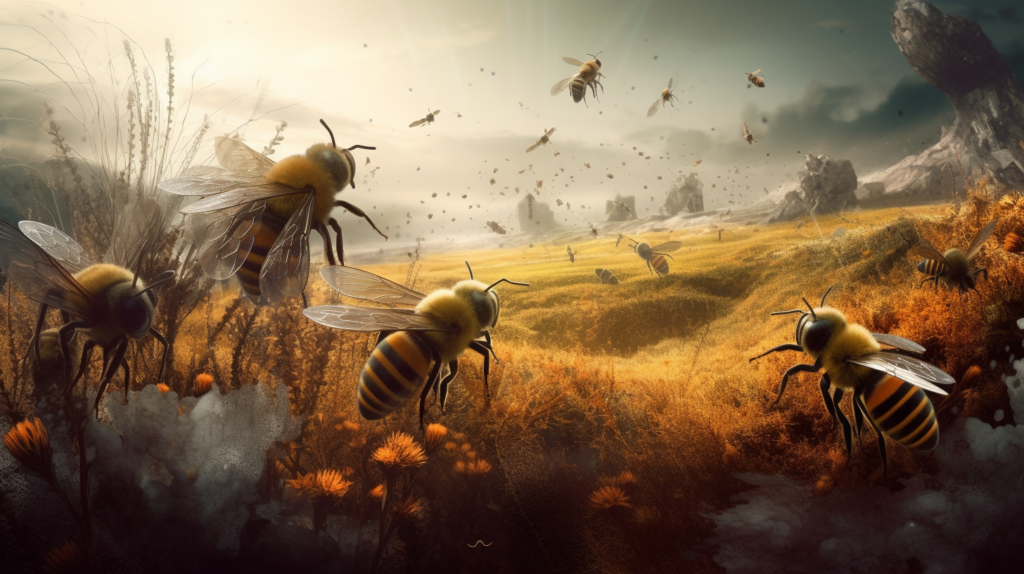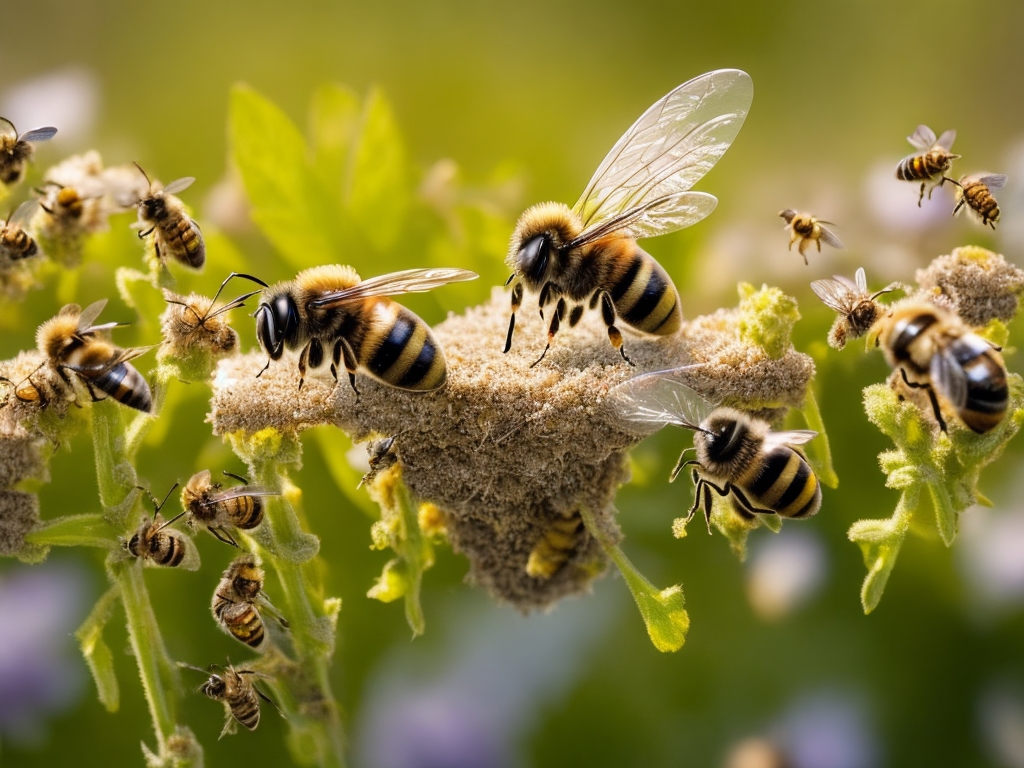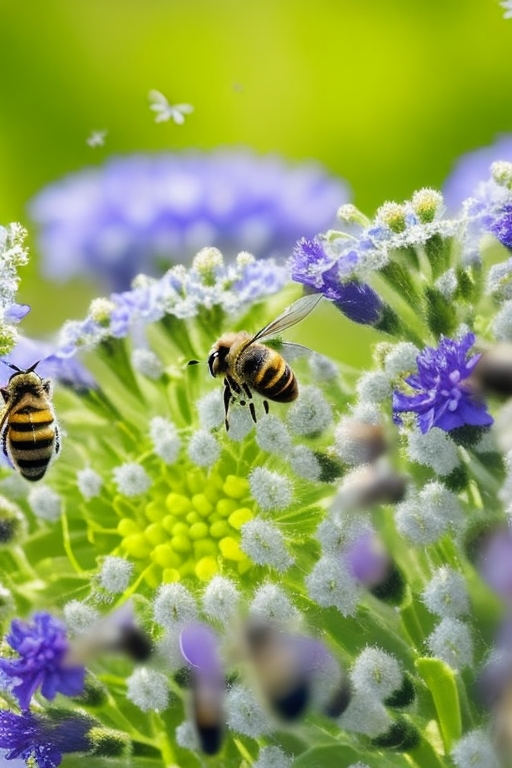Discover the intricate world of grounded bees, their behavior, causes, and impact on the environment. This detailed study uses statistics, real-world examples, and expert opinions to delve into the multifaceted issue.
Introduction to Grounded Bees
Definition of Grounded Bees
A bee refers to a bee that, due to various reasons, has become unable to fly and ends up stuck on the ground. Bees grounded are a common yet often overlooked sight in many regions worldwide.
Species Affected
While it is prevalent across many bee species, honey bees (Apis mellifera) and bumble bees (Bombus terrestris) are the most commonly found bees. Their size and distinctive colors often make their grounded state more noticeable (Goulson, D., 2010).
Prevalence of Grounded Bees
Bees have been a topic of interest among researchers due to the frequency with which they occur. Recent statistics have shown a significant increase in grounded bees, causing concern among scientists and environmentalists.
Consequences of Grounded Bees
When bees are grounded, they are unable to perform their usual tasks, such as pollinating plants or producing honey, leading to potential ripple effects in the ecosystem.
What Causes Bees to Become Grounded?
Bees can grounded result from various factors, including disease, exhaustion, and environmental factors such as weather conditions or pesticide exposure.
Deep-Dive into Grounded Bees’ Causes

Disease and Parasites
According to Professor Madeleine Beekman, a specialist in bee behavior, diseases such as Nosema and Deformed Wing Virus, as well as parasites like Varroa mites, can severely weaken bees, rendering them grounded.
Exhaustion
Bees can also be grounded due to exhaustion from overwork or malnourishment, particularly in urban areas where suitable flowers are scarce.
Pesticides
Pesticides are a significant contributor to the problem of grounded bees. Neonicotinoids, for instance, can disorient bees, causing them to become grounded.
Environmental Factors
Weather changes, such as cold or rainy conditions, can also ground bees, particularly those caught outside the hive during unfavorable conditions.
Aging
Old bees are often grounded as their wings become worn out from continual flight.
Impact of Grounded Bees on Ecosystem

Decline in Pollination
One direct consequence of bees becoming grounded is a decrease in pollination, affecting plant reproduction and consequently food production.
Reduction in Honey Production
With fewer bees able to return to the hive, honey production may decline, impacting beekeepers and consumers alike.
Disruption of Food Chains
Grounded bees can disrupt food chains, impacting predators and scavengers that rely on bees as a food source.
Environmental Ripple Effects
This disruption can have cascading effects on other species and ecosystems, demonstrating how bees can significantly influence biodiversity.
Implications for Human Agriculture
Bees could potentially lead to serious implications for human agriculture, given that 75% of global food crops rely on pollination (Klein et al., 2007).
Mitigation Strategies for Grounded Bees

Reduction of Pesticide Use
Reducing the use of harmful pesticides is a significant step toward reducing the number of grounded bees.
Provision of Bee-Friendly Habitats
Creating more bee-friendly habitats, like gardens full of nectar-rich flowers, can help bees recover their energy and reduce the likelihood of exhaustion.
Grounded Bee Health Monitoring
Regular health checks and management of bee populations can prevent diseases and parasites from grounding bees.
Public Education About Grounded Bees
Public education is key to raising awareness about the importance of bees and the negative impacts of grounded bees.
Legislation
Implementing supportive legislation can protect bees from threats like pesticide exposure, habitat loss, and climate change.
Future of Grounded Bees: What Experts Say
Urgency to Address Grounded Bees
Experts like Dr. David Goulson highlight the urgency to address the issue of bees, noting that the situation is a “canary in the coal mine” for broader environmental problems.
Grounded Bees of Conservation Efforts
Conservation efforts are ramping up, focusing not only on preventing bees from becoming grounded but also on fostering robust, diverse bee populations.
Technological Interventions
Technological solutions, like robotic bees and AI-driven hive management systems, are being explored as potential ways to supplement natural bee populations and mitigate the impacts of grounded bees.
Potential Impacts of Climate Change
The potential impacts of climate change on bees and grounded bees, in particular, are a growing concern, with further research necessary to fully understand the implications.
Hope for the Future
Despite the challenges, experts remain hopeful, believing that with global cooperation and sustained efforts, the issue of grounded bees can be effectively managed.
In conclusion
The phenomenon of grounded bees presents a crucial environmental challenge. It is critical to understand its causes, which range from disease and exhaustion to environmental factors and pesticides. The impacts on ecosystems, biodiversity, and agriculture are far-reaching. Therefore, urgent intervention is necessary, involving a reduction in pesticide use, creating bee-friendly habitats, continuous health monitoring, public education, and supportive legislation. With a concerted global effort, it is hopeful that the situation can be managed effectively, safeguarding our ecosystems and the pivotal role bees play within them.
FAQs
- What is a grounded bee?
A grounded bee refers to a bee that, due to various reasons, cannot fly and ends up on the ground. - What causes bees to become grounded?
Grounded bees can result from various factors, including disease, exhaustion, environmental factors, pesticides, and aging. - How do grounded bees affect the ecosystem?
Grounded bees can lead to a decrease in pollination and honey production, disrupt food chains, influence biodiversity, and impact human agriculture. - What are some mitigation strategies for grounded bees?
Mitigation strategies include reducing pesticide use, creating bee-friendly habitats, monitoring bee health, public education, and implementing supportive legislation. - What do experts say about the future of grounded bees?
Experts highlight the urgency of addressing this issue, the role of conservation efforts and technology, the potential impacts of climate change, and hope for the future.
References:
Goulson, D. (2010). Bumblebees: Behaviour, Ecology, and Conservation. Oxford University Press.
Klein, A. M., Vaissiere, B. E., Cane, J. H., Steffan-Dewenter, I., Cunningham, S. A., Kremen, C., & Tscharntke, T. (2007). Importance of pollinators in changing landscapes for world crops. Proceedings of the Royal Society B: Biological Sciences, 274(1608), 303–313.
Beekman, M., & Ratnieks, F. L. (2000). Long-range foraging by the honey-bee, Apis mellifera L. Functional Ecology, 14(4), 490-496.
https://hindishayaribox.com/category/love-shayari
Image Credit: https://www.downtoearth.org.in/blog/agriculture/to-protect-india-s-bees-we-need-to-understand-their-impact-on-agricultural-practices-89333
